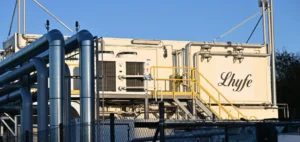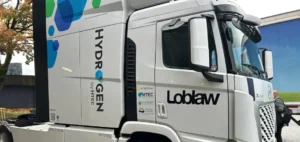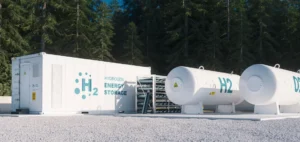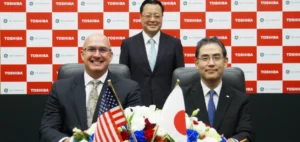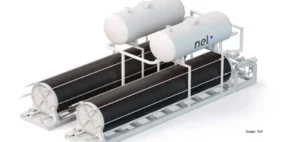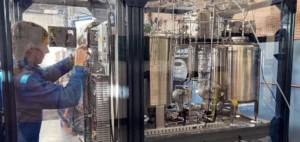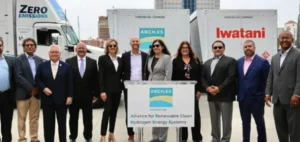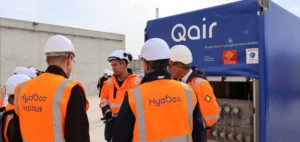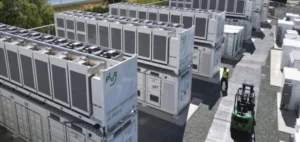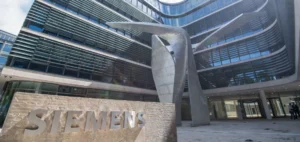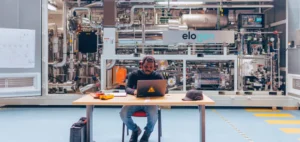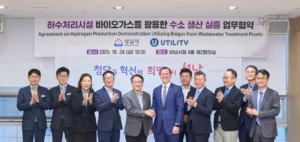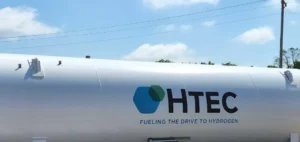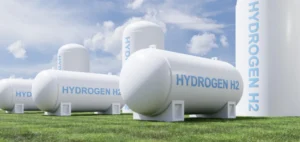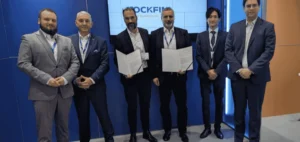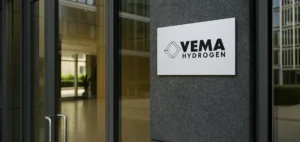RWE has commissioned a 14 MW pilot electrolyzer in Lingen, on the site of its Emsland gas-fired power plant in northwest Germany.
The facility, capable of producing up to 270 kilograms of green hydrogen per hour, represents a major step forward in RWE’s strategy to become a leader in large-scale green hydrogen production.
The electrolyzer uses electricity from renewable sources, making it a cornerstone in the process of decarbonizing Germany’s industrial sector.
The Lingen project is part of a wider drive by RWE to strengthen its presence in the field of green hydrogen.
This pilot plant is accompanied by a larger-scale development with the GET H2 Nukleus project, which will see the construction of a 100 MW electrolyzer by 2025, with capacity to expand to 300 MW by 2027.
These projects are supported by public funding, notably from the German federal government and the state of Lower Saxony.
Technological challenges and public support
The Lingen project is based on the integration of two distinct electrolysis technologies: a 10 MW alkaline electrolyser supplied by Sunfire, and a 4 MW proton exchange membrane (PEM) electrolyser designed by Linde in collaboration with ITM Power.
These technologies are being tested under real-life conditions to assess their efficiency and compatibility with large-scale production.
The results of these tests will provide valuable data for optimizing future industrial projects. The German authorities’ commitment to this project underlines the strategic importance of green hydrogen in achieving the country’s climate objectives. Robert Habeck, Federal Minister of Economics and Climate Action, and Stephan Weil, President of Lower Saxony, both reaffirmed their support for these initiatives, stressing that green hydrogen is essential to reducing Germany’s dependence on fossil fuels and supporting the country’s energy transition.
Implications for industry and infrastructure
RWE plans to use the hydrogen produced at Lingen in several industrial applications.
Initially, it will be injected into the power plant’s gas turbines to test its effectiveness as an alternative fuel.
This approach reduces CO2 emissions while maintaining stable energy production.
What’s more, from 2025, hydrogen will also be used to fuel vehicles, thanks to the construction of a filling station on the power plant site.
The development of green hydrogen at Lingen is emblematic of the challenges facing the energy industry.
Large-scale production requires not only significant technological advances, but also suitable infrastructures for transporting and storing hydrogen.
RWE, in partnership with other industrial players and with the support of public authorities, is playing a key role in structuring this new energy sector.
The success of these projects will depend on the evolution of storage technologies, the development of distribution networks, and the ability of industry to adopt hydrogen as a sustainable alternative to fossil fuels.




